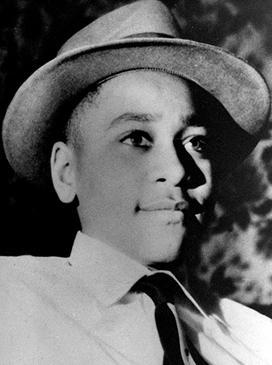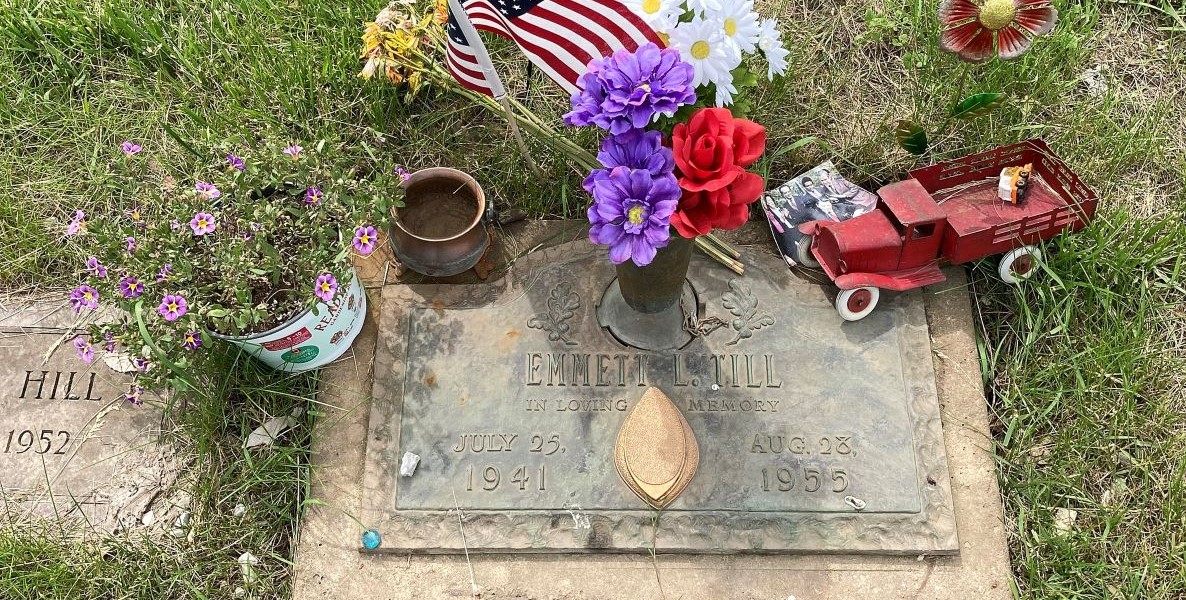Emmett Till is eternal. His mother, Mamie Till-Mobley made him so. She did this through sheer determination and a grieving sacrifice that exposed the evil underbelly of anti-Black racial violence for all to see. His was a posthumous image that gave life to a civil rights movement that continues — in practice and in commemoration to this day. The civil rights movement will similarly live on in the annals of history in perpetuity.
This week, the President of the United States signed a proclamation that establishes the Emmett Till and Mamie Till-Mobley National Monument in Mississippi and Illinois. The monument is featured across three sites.
Many will feel and embrace the triumph of this moment — and they should. The relatives and descendants of Emmett Till and Mamie Till Mobley, along with those cultural workers who have driven the work of the Emmett Till Legacy Foundation have been indefatigable in their efforts. They have organized, marched and struggled. They have developed documentaries, historical content, and major films, all designed to instantiate a history that continues to haunt us — the raging anti-Blackness of America that might not ever die. But neither will the history that documents it.
This marker, this monument and this moment are more than the sum of their locations, signs and national designations. They are a loud rejoinder to the current efforts to erase Black history and Black humanity.
The multi-regional nature of this monument signals the range and expansiveness of what the Till family was forced to sacrifice at the altar of American racism. One site, Roberts Temple Church of God and Christ is in Chicago, IL. It is the historic church that hosted Till’s open-casket homegoing services. A second site is the Tallahatchie County Second District Courthouse, where Till’s kidnappers and murderers were acquitted after an all White, all male jury deliberated for about an hour. (They later sold their story about kidnapping and murdering Till to a journalist.) These sites, the church and the courthouse, remain pivotal places for the struggle to redress racial injustice.
Emmett Till was just 14 years old.
The third site of the Emmett Till and Mamie Till-Mobley National Monument is a place called Graball Landing located near Glendora, MS. It was actually dedicated as an historic site in 2019. Graball Landing is the place from which Till’s tortured and mutilated body was recovered from the Tallahatchie River (right where it converges with the Black Bayou).
Graball Landing has been a flashpoint for monuments, and the vandalism that targets any symbol that reflects/represents Black history. The sign marking the spot at Graball Landing has been shot up — multiple times — over the last several years. The current iteration of this important historical marker — now the third site in the newest national monument — is 500 pounds and bulletproof.
Black history is rooted in the earth
The new bulletproof historical marker will now mark history for a long time — sans racist bullet holes. It is a canny response to the would-be vandals who can’t stomach any indication of our nation’s original sin, much less the history that documents the long legacy of White supremacy and anti-Black racial violence. But, this marker, this monument and this moment are more than the sum of their locations, signs and national designations. They are a loud rejoinder to the current efforts to erase Black history and Black humanity.
Our history is bulletproof. Black history is bulletproof. Try as a racist might, you cannot shoot away centuries of the forced labor that built the very foundations of this nation. You can’t silence the enduring struggle of people stolen from their homeland, conscripted into chattel slavery and ever emergent from all of it. It simply isn’t possible. Bullets beware. You might rip flesh and bring mortal consequences to mere humans on a regular, daily, if not hourly basis, but bullets can’t breach the patina of Black history. It simply isn’t possible.
Many Union soldiers used primitive iterations of bulletproof vests during the Civil War. Some Confederates did too. These vests weren’t Army issue — Union or otherwise. They were peddled — sometimes on the battlefield — by early American capitalists selling the dream that protection from bullets might ever catch up to the mortal power of bullets. It never will. But the fact that bulletproof vests were bought and sold during the “War of Northern Aggression” is emblematic of how violence, history and our attempts to protect ourselves from violence are all inextricably linked. Too much of the history in America is the history of American violence against Black people.
The sleep-walking “anti-woke” culture wars might be all the rage at the moment, but they are not the stuff of history. They represent the political maneuverings designed to bring comfort to a fleeting majority and those who would rather embrace hate than look history in the face. These are not serious people.
Black history is a bloodline in this nation’s geo-political body. It is rooted in the earth that we are — as of yet — unable to warm and destroy. The legacy of figures like Emmett Till and Mamie Till-Mobley lives in the minds and hearts of millions of people. The substance of monuments and museums is critical to the commemoration of these histories, but they are not the sole arbiters of whether or not Black history exists or if people who engage this history will continue to be edified and inspired by the everlasting struggle of oppressed people. And yes, Black folks are still oppressed in America. That data is clear.
The Supreme Court recently unraveled affirmative action. Years ago, it did away with the important pre-clearance measures of the Voting Rights Act. The College Board has waffled on the value of African American Studies. If you are teaching about the Peculiar Institution in the great state of Florida you might have to teach children that slavery was beneficial to enslaved Africans.
The sleep-walking “anti-woke” culture wars might be all the rage at the moment, but they are not the stuff of history. They represent the political maneuverings designed to bring comfort to a fleeting majority and those who would rather embrace hate than look history in the face. These are not serious people.

The establishment of the Emmett Till and Mamie Till-Mobley Monument is a moment worth all of its weight in the current culture wars. Given the longform efforts required to arrive at this moment — President Biden signing a proclamation that this is American history — the difference between Black history and anti-Black politics is clearer than tap water in an upper middle-class neighborhood. Black history is formed in the kiln of our culture. It belongs to no one, but serves everyone. It is the stuff of American legend even when Americans don’t want to recognize and/or celebrate it.
Plenty of people will continue to fight against those who would shoot bullets at our history. Some will even sacrifice their lives and livelihood on that same altar upon which Mamie Till-Mobley was forced to give her son. But the facts of history — American history, Black history, Black American history — are immutable. The monuments and the museums are simply here to refresh our memory.
![]() MORE ON FIGHTING RACISM FROM THE CITIZEN
MORE ON FIGHTING RACISM FROM THE CITIZEN



